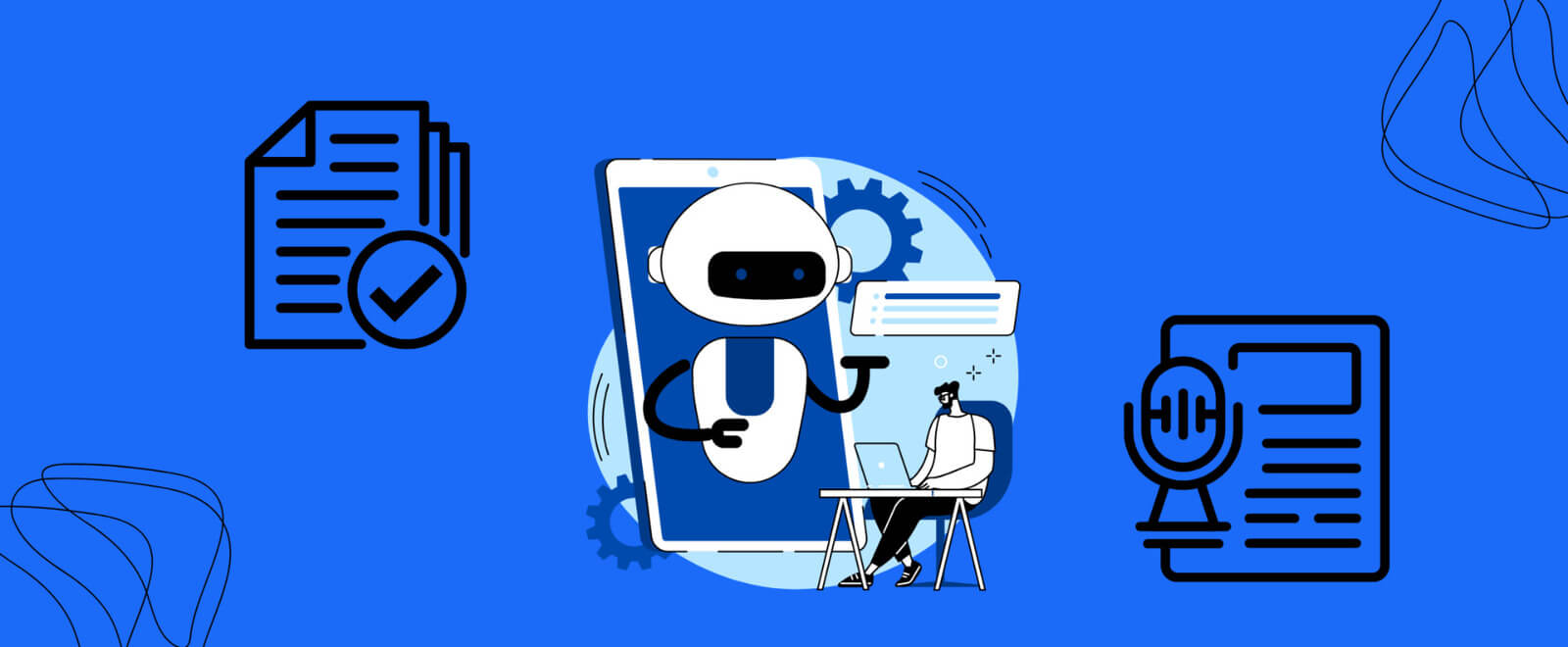‘When you pay attention to detail, the big picture will take care of itself.’
This line by Georges Pierre aptly describes the curious and meticulous attributes of a researcher. Their thirst for knowledge leads them to go beyond the ordinary limits and evaluate data or information from every angle. However, with the digital era on the rise, all the determination & diligent strides of researchers are sometimes rendered futile if the information itself is not accurate. To ensure smooth sailing in the domain of research, there has been a rise in transcription in research.
With piles of documents, endless information, and videos to refer to, driving accurate data analysis becomes a dreadful task. From academics to legal research, every researcher is keen on deriving the desired result. However, be it quantitative analysis or the qualitative approach, those days of tedious work patterns have been outrun by the digital age with several research transcription services offered at large.
It makes one wonder, ‘Is transcription in research a game-changer?’
What is Transcription in Research?
Researchers are often prone to listening to several audio recordings and videos that help them widen their knowledge on a particular subject. However, when the time requisites for recalling specific information from a vast fleet of documents and sources, they’re left helpless. Transcription helps to preserve all those integral pieces of information in a written format by converting audio and videos into written text.
Usually, there are two approaches to research transcription services.
Verbatim Transcription
It involves capturing every word and sound exactly as it occurs, including pauses, filler words, and non-verbal sounds.
Non-Verbatim Transcription
This approach focuses on the content, omitting filler words and irrelevant sounds to provide a cleaner and more readable text.
‘Are transcripts useful across fields?’
Transcription is vital across various fields.
Academic Research
Transcripts enhances the analysis of interviews, focus groups, and lectures. It’s the same reason why institutions resort to the use of academic transcriptions.
Medical Research
Medical is a vast field that requires quantitative and qualitative research transcriptions. It assists medical researchers in accurately documenting patient interactions and clinical trials.
Legal Research
This is one such field where research transcription services are utilized the most. It helps to provide detailed records of depositions, trials, and hearings.
Benefits of Transcription in Research
Transcription in research offers several advantages that enhance the overall quality and reliability of data. While there are several benefits to mention, below are the most useful ones that would convince you to use transcription in research.
Enhances Data Accuracy and Reliability
Accurate transcriptions ensure that no details are lost, enabling researchers to revisit the data multiple times. This is particularly important in qualitative research, where nuances in speech can significantly influence the findings.
Facilitates Detailed Analysis and Interpretation
Having a written record makes it easier to analyze and interpret data. Researchers can annotate texts, highlight key points, and categorize information systematically, leading to more comprehensive insights.
Techniques and Tools for Effective Transcription
Transcription can be done manually or using automated services. Each method has its own set of advantages. When researchers think of research transcription services they often visualize a human transcriber who’d take their own sweet time to transcribe every piece of information. However, the reality is slightly different.
Manual vs. Automated Transcription Services
Manual Transcription
Often more accurate as it involves human transcribers who can understand context and nuances. However, it is time-consuming and can be expensive.
Automated Transcription
Tools like Konch AI offer fast and efficient transcription services. These tools use advanced algorithms to convert speech to text accurately and are cost-effective. With over 50 + languages, Konch AI bestows you with the freedom and efficiency you need in your research work.
Best Practices for Transcriptionists
Clear Audio Quality
Ensure the recording is of high quality to avoid misunderstandings. Transcriptions utilize AI & complex algorithms that solely rely on the recording.
Consistent Terminology
Use consistent terminology, especially in specialized fields like medicine or law. These fields often have such terms which can be confused with one or the other.
Confidentiality
This pointer accounts for the basic principle of every human transcriptionist. They are bound to maintain strict confidentiality, especially when dealing with sensitive data.
Impact of Transcription on Data Analysis
Transcription is a cornerstone of qualitative content analysis, transforming audio or video data into written text that can be systematically examined. Qualitative research transcription significantly impacts the field in the following ways.
Facilitates In-Depth Thematic Analysis
Transcription allows researchers to conduct thematic analysis by identifying recurring themes, patterns, and concepts within the data. With a written transcript, researchers can thoroughly review and re-review the content, marking and categorizing important sections to uncover underlying themes.
Enhances Rigour and Transparency
Having a complete and accurate transcript enhances the rigour of qualitative research. It provides a transparent record that other researchers can review, ensuring that the findings are grounded in the actual data.
Supports Multiple Coding and Triangulation
Transcription enables researchers to apply multiple coding methods to the same dataset, offering different analytical perspectives; this is commonly seen in academic transcriptions. It also facilitates triangulation, where multiple researchers independently analyze the same transcripts to validate findings and reduce individual bias.
Future Trends in Transcription for Research
The future of transcription in research is promising, thanks to advancements in AI and machine learning.
Advances in AI and Machine Learning
AI-powered tools are becoming increasingly sophisticated, offering higher accuracy and faster turnaround times. Machine learning algorithms continuously improve by learning from vast datasets, making automated transcription services like Konch AI more reliable.
The Growing Importance of Transcription in Diverse Research Fields
As research methodologies evolve, the need for precise transcription grows. Fields like social sciences, market research, and digital humanities are increasingly relying on transcription for detailed qualitative analysis.
Multilingual Transcription
As AI technology advances, transcription tools are becoming proficient in multiple languages. This capability is crucial for global research initiatives, enabling researchers to transcribe and analyze data from diverse linguistic backgrounds without needing multiple tools or services.
To save you the anticipation of leaping into the future, Konch AI is already miles away from all your regular AI tools and offers all the futuristic & advanced benefits that would supplement your research.
Choosing the Right Transcription Service
Selecting the right transcription service is crucial for ensuring the quality and efficiency of your research. Konch AI is a leading transcription service that leverages advanced AI and machine learning technologies to deliver high-quality transcriptions. Here’s why Konch AI stands out:
High Accuracy
Konch AI uses cutting-edge algorithms to achieve high accuracy rates, ensuring that your transcriptions are reliable and precise.
Rapid Turnaround
With its efficient processing capabilities, Konch AI offers quick turnaround times, allowing you to receive your transcriptions promptly.
Affordability
Konch AI provides cost-effective solutions, making high-quality transcription accessible to researchers with varying budget constraints.
Data Security
Konch AI prioritizes the security and confidentiality of your data, using encryption and other protective measures to safeguard your information.
With Konch AI, you can get your transcriptions in four steps!
1. Upload your file
2. Select your preferred language
3. Let Konch AI do its magic
4. Get your transcription within seconds & review!
Conclusion
Transcription in research is bound to be a preferred tool that enhances data accuracy, facilitates detailed analysis, and supports robust research findings. As technology advances, tools like Konch AI are making transcription faster, more accurate, and more accessible. The future of transcription in research looks bright, promising even greater integration and innovation across various fields.
FAQs
1. How does transcription impact the accuracy of research findings?
Transcription ensures that no details are lost, allowing researchers to accurately capture and analyze all aspects of their data.
2. What are the best tools for transcription in research settings?
There are several tools available in the market for transcriptions. However, if you’re looking for one that aces in accuracy, speed, and affordability, then Konch AI is your go-to tool.
3. How do researchers ensure the confidentiality of transcribed data?
Confidentiality is one of the biggest concerns for every researcher using AI tools. You can resort to using secure transcription services, such as those who are GDPR compliant. To quell your concerns, you can use Konch AI, which is GDPR compliant and prioritizes data protection.
4. What is the difference between verbatim and non-verbatim transcription?
Verbatim transcription includes every word and sound, while non-verbatim transcription focuses on the content, omitting filler words and irrelevant sounds.




